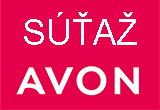
Odľahčený zemiakový šalát s kôprom a uhorkou
Na 4 porcie budeme potrebovať:
- 500g šalátových zemiakov (typ A)
- 1 šalátovú uhorku
- 3 – 4 stonky kôpru
- 70g bieleho jogurtu gréckeho typu
- 100g kyslej smotany
- 2 – 3 lyžice kvalitného panenského oleja (môže byť olivový alebo repkový)
- Soľ
- Korenie
Postup: Zemiaky uvarte v šupke a nechajte vychladnúť. Potom ich ošúpte a nakrájajte na kocky alebo „hranolky“, skrátka ako na klasický šalát. Uhorku nakrájajte na menšie kocky zhruba vo veľkosti 1 centimetra a dajte do väčšej misky spoločne so zemiakmi. Pridajte nadrobno nasekaný kôpor.
V inej miske si zmiešajte kyslú smotanu, biely jogurt a kvalitný olivový olej. Olej môžete voliť olivový alebo repkový (zostávajte však u panenského).
Dobre premiešajte a zmiešajte so zmesou v mise. Osoľte a okoreňte podľa chuti. Pred podávaním nechajte vychladnúť, ideálne aj pár hodín odležať.
Chuť kôpru sa výborné hodí k rybám, avšak šalát môžete podávať napríklad aj s kvalitným mäsom.
Viac informácií na www.zrodene.eu





